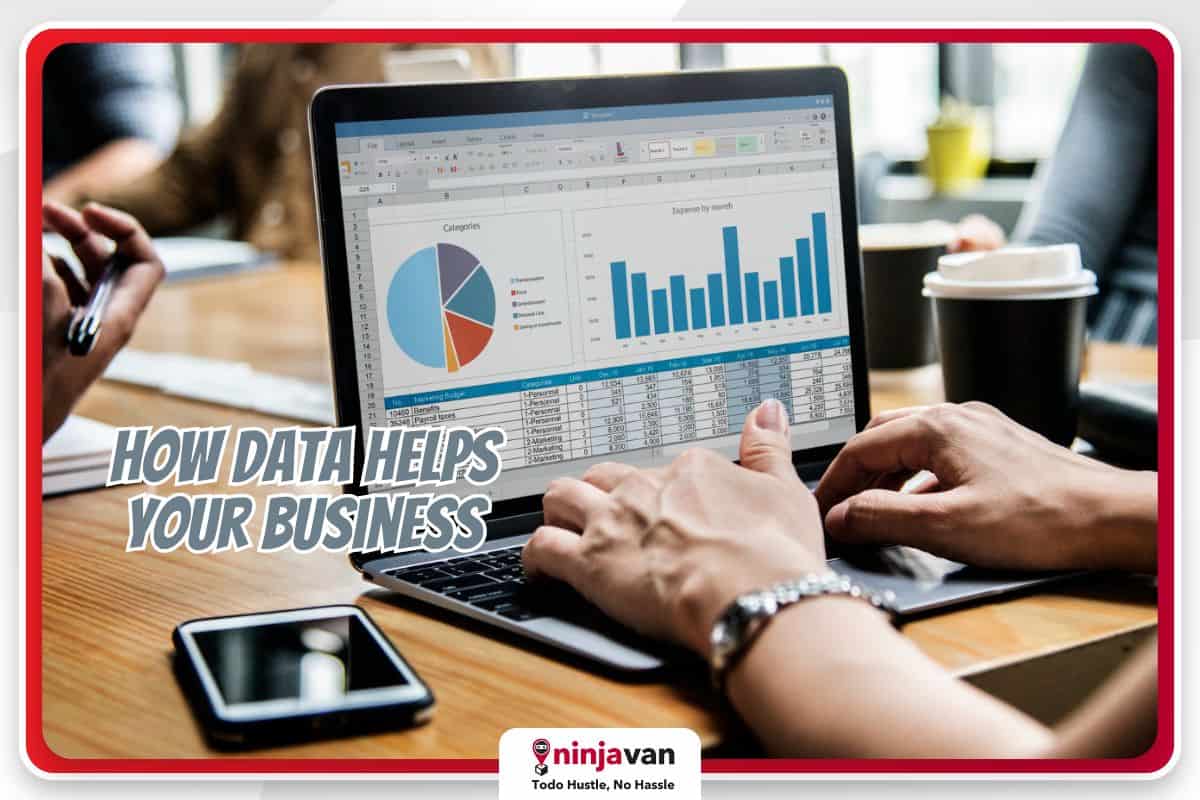Business data is a game-changer for SMEs and big companies. Understanding what customers want and designing your marketing strategies around their pain points start with good data.
This article will break down how data can help your business grow and give you practical tips on using different types of data effectively.
What is the role of data in business?
Data in business is the key to making smart decisions and planning strategically in any commercial endeavor. It includes information from various sources that can be analyzed to gain valuable insights.
Here’s why business data is crucial to your success:
Making smart decisions
Data gives you solid evidence to base your business decisions on, so you’re not just guessing.
Understanding customers
Analyzing customer data reveals what your customers like, their buying habits and market trends. This helps you create targeted marketing techniques and provide better customer experience.
Running your business efficiently
Your business data helps streamline processes, improve workflows and find areas that need improvement, leading to higher productivity and cost savings.
Staying competitive
With data-driven insights, businesses can spot new opportunities, avoid risks and stay ahead of the competition.
#NinjaTip: Your online business needs the right delivery partner. As a VIP Shipper, get special shipping rates, rebates, fast COD remittances and more perks to optimize your business and cut your costs. Be a Ninja Van VIP Shipper today!
Top 5 ways data helps businesses
Data benefits different business units and operations. Below is a list of how data add value to a business:
1. Targeting customers
Data helps you group customers by their demographics, behaviors and preferences, enabling personalized marketing and product recommendations.
Imagine you run a bakeshop chain. With business data on hand, you may see that younger customers are more interested in unique dessert options like vegan pastries or artisanal cakes.
Armed with this insight, you can tailor your marketing efforts to target this specific audience, leading to increased sales and happier customers.
2. Managing inventory
By analyzing sales and inventory data, you can maintain the right stock levels, reduce storage costs, and avoid stocking out. You can predict which items are flying off the shelves and which ones are slow moving inventory.
#NinjaTip: Outsource your inventory management and order fulfillment to Ninja Van so you can focus on your marketing and sales goals! Partner with Ninja Fulfillment now!
3. Predicting trends
Looking at past data helps you predict future trends and demand, making proactive decisions easier.
Let’s say you’re operating a fashion store. Past sales data can reveal seasonal trends and customer preferences. This allows you to stock up ahead of time to meet customer needs and maximize profits.
4. Tracking performance
If you’re managing a growing ecommerce store, data-driven metrics let you keep a close eye on key performance indicators like website traffic, conversion rates, and customer retention.
Spotting any dips or issues early on helps you tweak strategies and continuously improve your business.
5. Managing risks
Data analytics can identify potential risks like market changes or supply chain issues, helping you take action before problems arise.
Identify potential challenges such as fluctuations in raw material costs or disruptions in transportation. Being proactive in managing these risks ensures smoother operations and avoids costly surprises.

5 Types of data used in business
Here are the main types of data that businesses use to optimize their processes and boost profitability.
1. Sales data
This includes sales records, invoices and payment history. It shows how your business is making money and helps you understand customer buying patterns.
2. Customer data
This covers customer demographics, contact details, purchase history and interactions with your business. Analyzing this data helps you personalize marketing efforts and improve customer retention.
3. Website and social media data
Data from your website and social media shows how customers interact with your online presence, providing insights into their preferences and how they see your brand.
4. Operational data
This includes information about your production processes, supply chain, and inventory levels. Analyzing operational data can help you improve efficiency and cut costs.
5. Market research data
This includes industry trends, competitor analysis, and consumer preferences. Using this data helps you spot market opportunities and refine your strategies.

5 ways to use data to drive business growth
1. Personalized marketing
Use customer data to create targeted marketing campaigns and personalized offers that resonate with specific segments.
Examples are personalized promotions, like offering a free item on their birthday or sending special discounts to encourage repeat purchase.
2. Predicting inventory needs
Analyze sales data to predict future demand and keep the right amount of stock, reducing storage costs and preventing stockouts.
It’s like having a crystal ball that tells you exactly what your customers will need next, so you can be ready to serve them without missing a beat.
3. Improving customer experience
Use customer feedback and interaction data to improve your products and services, boosting customer satisfaction and loyalty.
You can tailor your inventory to their preferences, offer personalized tips, and create a shopping experience that keeps them coming back for more.
4. Boosting efficiency
Analyze operational data to find and fix inefficiencies, spot bottlenecks in your workflow, streamline your processes, and automate repetitive tasks, leading to higher productivity and savings.
5. Understanding the competition
Study market and competitor data to identify trends, understand your market position, and find ways to gain an edge over competitors.
You’re a tech startup, developing the next big app that’s going to revolutionize the market. But you’re not alone — there are other players vying for the top spot.
Your data will tell you how your competitors are positioning themselves, and where you can carve out your own niche.
Leverage data to boost your business
Data in business is a powerful tool that can substantially improve and scale your business’s performance and competitiveness.

By understanding and using different types of data, businesses can discover new opportunities, improve customer experiences, and achieve sustainable growth. Embrace data in business as a strategic asset, and transform it into actionable insights to drive your venture forward.
And don’t just collect data, the most important task is turning them into real results that greatly impact how your business thrives in this digital age.
More useful tips to boost your business:
Top 3 Ways Ninja Van Uses AI in Logistics
What is CBM in Shipping?
Pros & Cons of Using Logistics Aggregators






